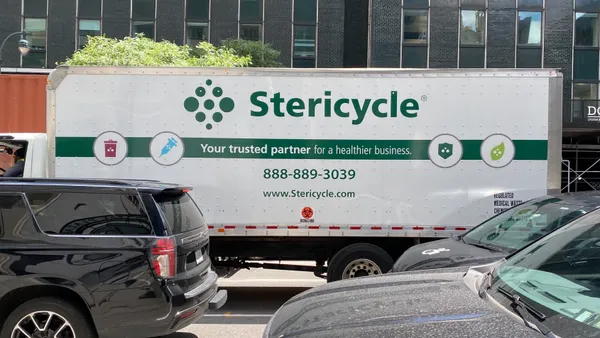Dive Brief:
- The Mid-Coast Solid Waste Corporation Board in Rockport, ME, and the three-town cooperative of neighboring Thomaston, South Thomaston, and Owls Head are recommending that their communities drop trash service with Penobscot Energy Recovery Co. (PERC) and go with Portland-based ecomaine.
- The board will meet with officials from Camden, Rockport, Lincolnville, and Hope before a June vote on the board's recommendation. But the situation may be up in the air with the three-town cooperative as South Thomaston may decide to remain members of the Municipal Review Committee (MRC) and its affiliate Fiberight LLC, which proposed a new facility. If the vote is split between towns there could be a second vote.
- Meanwhile Rockland, Knox County's largest community, has yet to decide what do when its contract with PERC ends in 2018, according to Bangor Daily News.
Dive Insight:
There are quite a few towns that must come together on a decision, and if the stars don't align, it could take a while to reach consensus. But at least the boards who represent them are (for the most part) on the same page; for instance none want to stay with PERC, whose fees are $84.36 for 15 years, while ecomaine processes trash for $70.50.
Many who have already made a decision want to sign with ecomaine for varied reasons, including that the company accepts single-stream materials, it’s permitted to incinerate ash, and it invests in teaching youth about recycling—though the nonprofit may soon have to start asking Mainers to pay for recycling.
The Mid-Coast Solid Waste board members especially liked ecomaine’s dual approach of recycling and waste-to-energy technology involving incinerating what's left over to generate electricity.
A few members were more sold on a new waste-processing facility proposed jointly by MRC and Fiberight LLC, with South Thomaston Selectman Jan Gaudio impressed with the advanced technology that pulls more materials from the waste stream than ecomaine's system. The MRC will hold its current rate as the towns and cities mull over their decision, but only until May 1, or within seven days after their town meetings.









